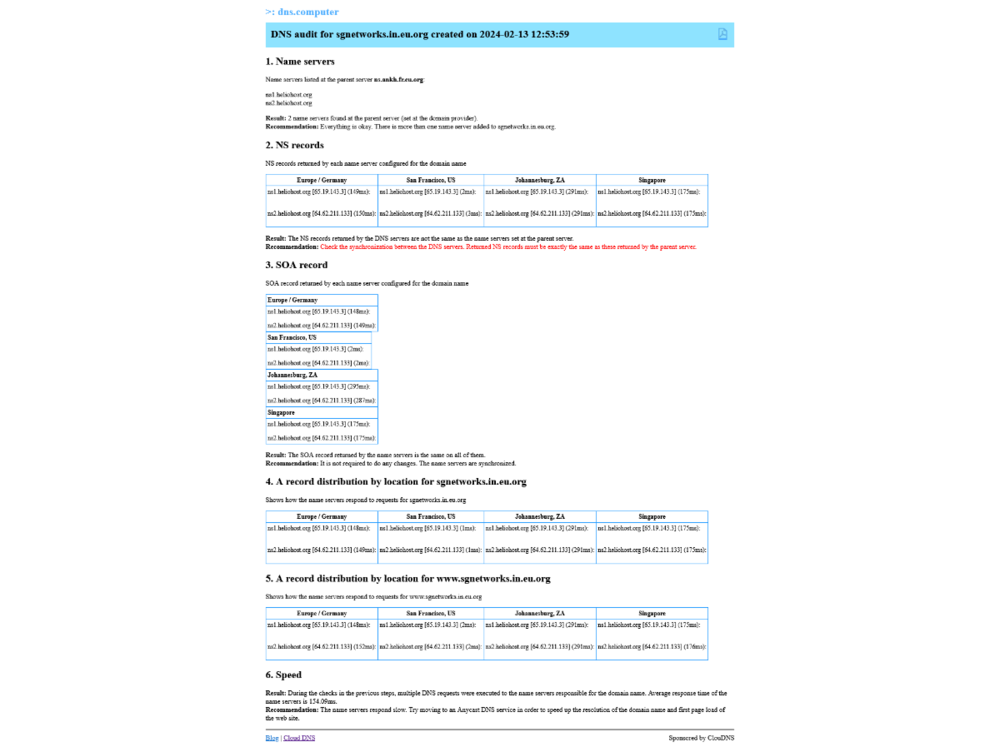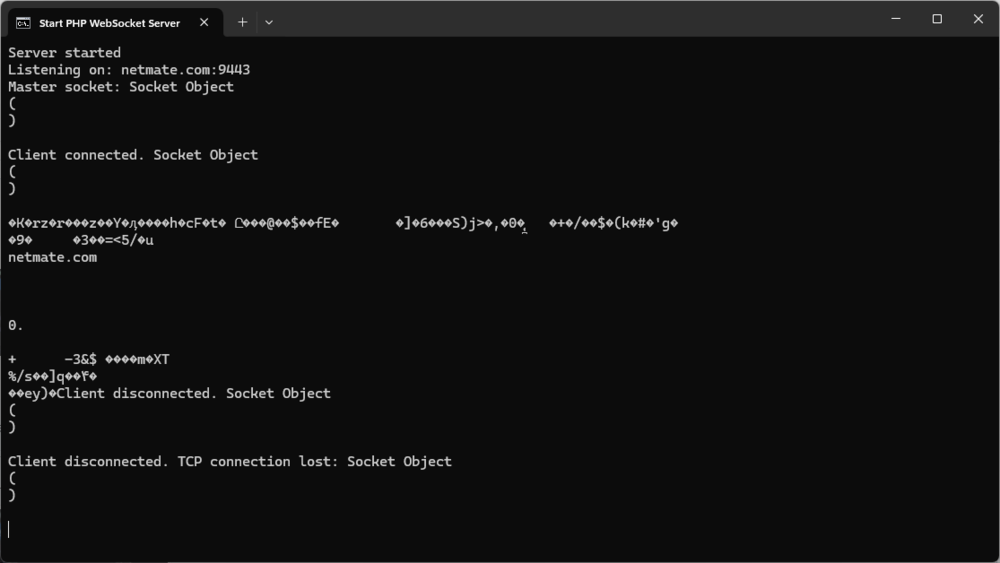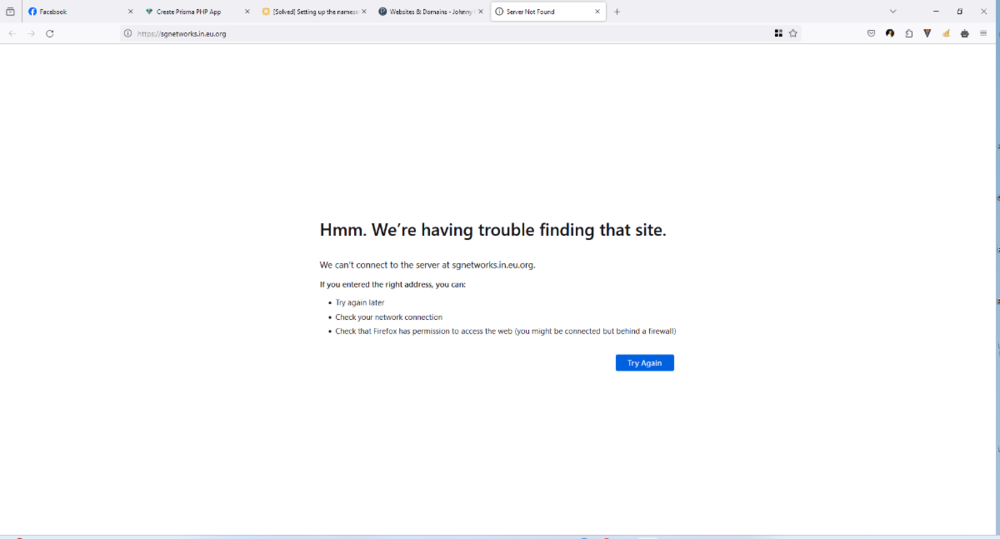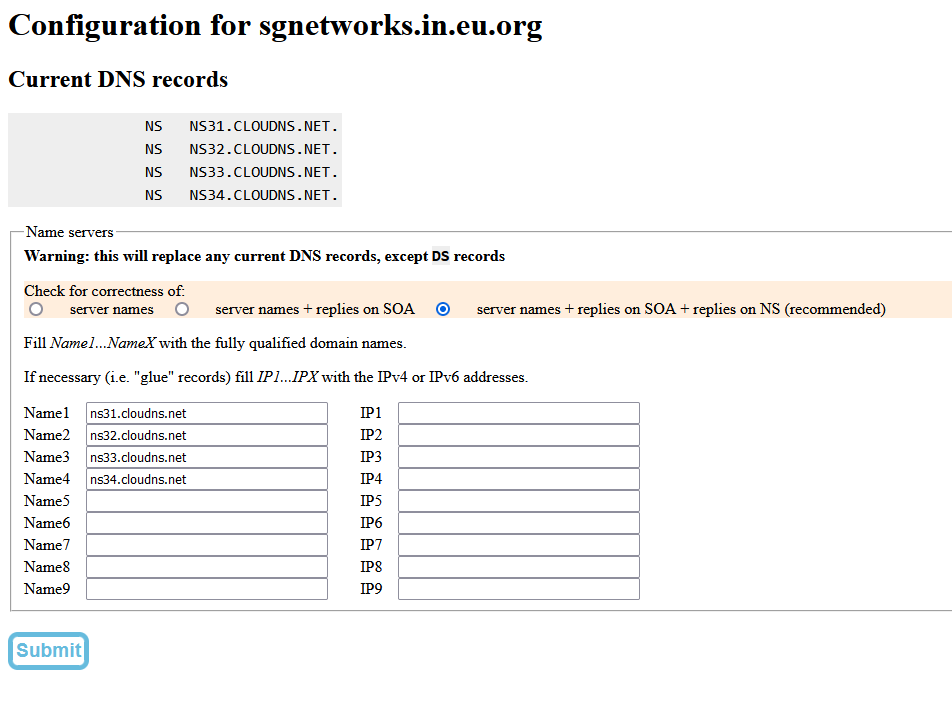-
Posts
484 -
Joined
-
Last visited
-
Days Won
1
Everything posted by sagnik
-
Hi! I'm trying to create a wrapper class for database operations but the problem is when I'm trying to call the fetch_object() function after a subquery it breaks the while() loop, you can check the codes below: public function query(string $sql = null, ?array $params = null, bool $return_result = false): bool|mysqli_result|mysqli_stmt|Result|PDOStatement|static { $return_result = $return_result ?? $this->return_result; $this->sql = $sql ?: $this->queryBuilder->build(); // Generate a unique query ID to track different queries $queryKey = md5($this->sql); try { switch ($this->mode) { case SGNDatabaseMode::NATIVE: if ($this->driver == SGNDatabaseDriver::MYSQL) { $this->results[$queryKey] = mysqli_query($this->con, $this->sql); } elseif ($this->driver == SGNDatabaseDriver::PGSQL) { $this->results[$queryKey] = pg_query($this->con, $this->sql); } else { $this->results[$queryKey] = db_query($this->sql, $this->con); } break; case SGNDatabaseMode::PDO: if ($this->driver instanceof SGNDatabaseDriver) { $stmt = preg_match('/SELECT/i', $sql) ? $this->con->query($sql) : $this->con->prepare($sql); $this->results[$queryKey] = $stmt; } else { $this->results[$queryKey] = db_query($this->sql, $this->con); } break; default: $this->results[$queryKey] = db_query($this->sql, $this->con); } // Reset result pointer for repeated fetches if ($this->results[$queryKey] instanceof mysqli_result || $this->results[$queryKey] instanceof PDOStatement) { $this->result = $this->results[$queryKey]; // Update result pointer } $this->queryStatus = (bool)$this->results[$queryKey]; } catch (Exception $e) { $this->queryStatus = false; } return $return_result ? $this->results[$queryKey] : $this; } public function fetch_object(string $class = 'stdClass', array $constructor_args = []): bool|null|object|string { try { // Get the unique query key for the current query $queryKey = md5($this->sql); // Unique key for the current query // Check if the results for this query exist if (!isset($this->results[$queryKey])) { return false; } $result = $this->results[$queryKey]; // Fetch object based on the query mode switch ($this->mode) { case SGNDatabaseMode::NATIVE: if ($this->driver == SGNDatabaseDriver::MYSQL && $result instanceof mysqli_result) { return mysqli_fetch_object($result, $class, $constructor_args); } elseif ($this->driver == SGNDatabaseDriver::PGSQL && $result instanceof Result) { return pg_fetch_object($result, null, $class, $constructor_args); } break; case SGNDatabaseMode::PDO: if ($this->driver instanceof SGNDatabaseDriver && $result instanceof PDOStatement) { return $result->fetchObject($class, $constructor_args); } break; default: if ($result instanceof mysqli_result) { return db_fetch_object($result, $class, $constructor_args); } } } catch (Exception $e) { // Handle exceptions if needed } return false; } The codes are from where the above functions are called. After calling the getCategory() from getProperties(), it breaks the while loop in getProperties(), resulting in only one iteration of the loop, while I have more than one row in the table 'properties'. Can anyone help me to address the issue? function getProperties() { $s = "SELECT * FROM properties"; $this->fpdb->query($s); // Execute the main query $result = []; // Loop through all rows in the result set while ($r = $this->fpdb->fetch_object(Property::class)) { // Get the category for each property (this will be a subquery) $r->category = $this->getCategory($r->cid); $result[] = $r; // Add to the result array } return $result; } function getCategory(int $id, string $get = null) { $s = "SELECT * FROM categories WHERE id='$id'"; $this->fpdb->query($s); // Execute the subquery $r = $this->fpdb->fetch_object(Category::class); // Fetch the category object // Return the category or specific field based on the `$get` argument return ($get != '*') ? $r->$get : $r; }
-
Hi, I'm trying to log in to the FTP server of my account located at the Johnny server. But I'm getting an error saying "Unable to connect to the server". Can you provide the details of the FTP server? Username: sgn
-
@wolstech Okay, I got your point. But I have a centralized login system for all the services/platforms which uses a database called "members" and the tables (specifically, "accounts") in it and a specific column of that table namely "uid" as a foreign key relation, i.e. if a row of that table is deleted this would delete all the information located throughout all other databases related to the "uid". Please let me know if there are any other ways to achieve this.
-
Hi, is there any way to create a foreign key linked to another database? I can't see all the databases in PMA.
-
@badrihippo Here is the code of SSO SignOn.php: <?php /* * Copyright (c) 2022-2023 SGNetworks. All rights reserved. * * The software is an exclusive copyright of "SGNetworks" and is provided as is exclusively with only "USAGE" access. "Modification", "Alteration", "Re-distribution" is completely prohibited. * VIOLATING THE ABOVE TERMS IS A PUNISHABLE OFFENSE WHICH MAY LEAD TO LEGAL CONSEQUENCES. */ session_start(); $SGNSSO = ['accounts.sgnetworks.net', 'accounts.sgnetworks.eu.org']; function is_base64(string $data): bool { $base64 = base64_encode(base64_decode($data, true)); return ($base64 === $data); } function is_base64URL(string $data): bool { $base64 = strtr($data, '-_', '+/'); $base64 = base64_encode(base64_decode($base64)); $base64 = strtr(rtrim($base64, '='), '+/', '-_'); return ($base64 === $data); } function Base64UrlEncode(string $data, bool $force = false): string { if($force) { return strtr(rtrim(base64_encode($data), '='), '+/', '-_'); } $base64 = (!is_base64($data)) ? base64_encode($data) : $data; return (!is_base64URL($base64)) ? strtr(rtrim($base64, '='), '+/', '-_') : $base64; } function Base64UrlDecode(string $base64, bool $strict = false): string|false { $data = (is_base64URL($base64)) ? strtr($base64, '-_', '+/') : $base64; return (is_base64($data)) ? base64_decode($data, $strict) : base64_decode($data); } function server(string $key, string|int|bool|array $default = null): array|bool|int|string|null { $server = $_SERVER; $null = ($default === null && !is_bool($default) && !is_array($default) && !is_integer($default) && !is_string($default)) ? null : $default; return (array_key_exists($key, $server)) ? $server[$key] : $null; } function session(string $key, string|int|bool|array $default = null): array|bool|int|string|null { $session = $_SESSION; $null = ($default === null && !is_bool($default) && !is_array($default) && !is_integer($default) && !is_string($default)) ? null : $default; return (array_key_exists($key, $session)) ? $session[$key] : $null; } function post(string $key, string|int|bool|array $default = null): array|bool|int|string|null { $post = $_POST; $null = ($default === null && !is_bool($default) && !is_array($default) && !is_integer($default) && !is_string($default)) ? null : $default; return ((array_key_exists($key, $post)) ? $post[$key] : $null); } function get(string $key, string|int|bool|array $default = null): array|bool|int|string|null { $get = $_GET; $null = ($default === null && !is_bool($default) && !is_array($default) && !is_integer($default) && !is_string($default)) ? null : $default; return (array_key_exists($key, $get)) ? $get[$key] : $null; } function buildURL(string $uri, ?string $params = null, ?string $args = null): string { $params = (!empty($params)) ? ltrim($params, '?' . '&') : ''; $args = (!empty($args)) ? ltrim($args, '?' . '&') : ''; if(!empty($params) && !empty($args)) { $url = (str_contains($uri, '?') || str_contains($params, '?') || str_contains($args, '?')) ? "$uri&$params&$args" : "$uri?$params&$args"; } elseif(!empty($params) && empty($args)) { $url = (str_contains($uri, '?') || str_contains($params, '?')) ? "$uri&$params" : "$uri?$params"; } elseif(empty($params) && !empty($args)) { $url = (str_contains($uri, '?') || str_contains($args, '?')) ? "$uri&$args" : "$uri?$args"; } else { $url = $uri; } $url_parts = parse_url($url); $qs = ''; if(array_key_exists('query', $url_parts)) { $qs = $url_parts['query']; parse_str($qs, $qo); $qs = (count($qo) > 0) ? http_build_query($qo) : ''; } $constructed_url = $url_parts['scheme'] . '://' . $url_parts['host'] . ($url_parts['path'] ?? ''); return (!empty($qs)) ? "$constructed_url?$qs" : $constructed_url; } function redirect(string $uri, string $vars = ''): void { $qm = (str_contains($uri, '?') || str_contains($vars, '?')) ? '&' : '?'; $url = buildURL($uri); if(!headers_sent()) { header("Location: $url"); exit(); } else { echo '<script>'; echo "window.location.href=('$url');"; echo '</script>'; echo "You will be redirected shortly. If you are not redirected automatically, please <a href='$url'>click here</a> to redirect"; } } function get_domain(string $url): string|false { $urlobj = parse_url($url); $domain = $urlobj['host']; if(preg_match('/(?P<domain>[a-z0-9][a-z0-9\-]{1,63}\.[a-z.]{2,6})$/i', $domain, $regs)) { return $regs['domain']; } return false; } if(server('REQUEST_METHOD') == 'POST') { $redirectTo = (!post('continue')) ? post('redirect') : post('continue'); $params = post('params', ''); $args = post('args', ''); $session = post('session'); $origin = post('origin'); } else { $redirectTo = (!get('continue')) ? get('redirect') : get('continue'); $params = get('params', ''); $args = get('args', ''); $session = get('session'); $origin = get('origin'); } $sc = explode('-', $session); $sessid = Base64UrlDecode($sc[0]); $uid = Base64UrlDecode($sc[1]); $uid_hashed = Base64UrlDecode($sc[2]); $ssoProcessed = false; $continueHost = $continue = ''; if(in_array($origin, $SGNSSO)) { $args = Base64UrlDecode($args); $redirectTo = Base64UrlDecode($redirectTo); $redirectTo = buildURL($redirectTo, $args); if(empty(session('sgn-login-sid'))) { if(empty($session)) { $continue = (!$redirectTo) ? $origin . server('REQUEST_URI') : $redirectTo; } else { $_SESSION['sgn-login-sid'] = $sessid; $_SESSION['sgn-login-uid'] = $uid; $_SESSION['sgn-login-uid_hashed'] = $uid_hashed; $_SESSION['sgn-login-expires'] = time() + 3600; $_SESSION['sgn-login-timestamp'] = time(); $_SESSION['sgn-login-ip'] = server('REMOTE_ADDR'); $ssoProcessed = true; $url = parse_url($redirectTo); $p = (array_key_exists('path', $url)) ? $url['path'] : ''; $q = (array_key_exists('query', $url)) ? '?' . $url['query'] : ''; $s = (!$q) ? "?sessid=$sessid" : "&sessid=$sessid"; unset($redirectTo); unset($_GET['session']); $continueUrl = $url['scheme'] . '://' . $url['host'] . $p . $q; $continue = "$continueUrl$s"; $continue = (!$continue) ? $_SERVER['HTTP_REFERER'] : $continue; $continueHost = $url['host']; $continueLocation = "{$url['scheme']}://$continueHost"; } } elseif(!empty($session)) { $_SESSION['sgn-login-sid'] = $sessid; $_SESSION['sgn-login-uid'] = $uid; $_SESSION['sgn-login-uid_hashed'] = $uid_hashed; $_SESSION['sgn-login-expires'] = time() + 3600; $_SESSION['sgn-login-timestamp'] = time(); $_SESSION['sgn-login-ip'] = server('REMOTE_ADDR'); $ssoProcessed = true; if(!empty($redirectTo)) { $url = parse_url($redirectTo); $p = (array_key_exists('path', $url)) ? $url['path'] : ''; $q = (array_key_exists('query', $url)) ? '?' . $url['query'] : ''; $s = (!$q) ? "?sessid=$sessid" : "&sessid=$sessid"; unset($redirectTo); unset($_GET['session']); $continueUrl = $url['scheme'] . '://' . $url['host'] . $p . $q; $continue = "$continueUrl$s"; $continue = (!$continue) ? $_SERVER['HTTP_REFERER'] : $continue; $continueHost = $url['host']; $continueLocation = "{$url['scheme']}://$continueHost"; } else { $continue = $_SERVER['HTTP_REFERER']; } } $params = (!empty($params)) ? Base64UrlDecode($params) : ''; $continue = buildURL($continue, $params); } else { echo 'The Origin Host is not allowed to make SSO Requests'; } if($_SERVER['REQUEST_METHOD'] == 'GET'): ?> <script> function crossDomainLogin() { const url = "<?=$continueLocation;?>/SGNSSO/SignOn"; const xhr = new XMLHttpRequest(); xhr.onerror = function() { if(xhr.status === 0) { console.log("Cross-Domain Request Failed"); } else { console.log("Cross-Domain Request Failed with the following Status: ", xhr.status); } }; xhr.onreadystatechange = function() { if(this.readyState === 4 && this.status === 200) { if(xhr.responseText === "done") { window.location.replace("<?=$continue;?>"); } else { console.log("SGNSSO is available only for SGNetworks and its Subsidiaries"); } } else { //console.log("Cross-Domain Request is not ready or the request has failed with status: ",this.status); } }; xhr.open("POST", url); xhr.setRequestHeader("Content-type", "application/x-www-form-urlencoded"); xhr.crossDomain = true; xhr.withCredentials = true; xhr.send("session=<?=$session;?>&origin=<?=$origin;?>&redirect=<?=Base64UrlEncode($continueUrl);?>"); } const sso = <?=($ssoProcessed) ? 'true' : 'false';?>; if(window.location.host !== '<?=$continueHost;?>') { crossDomainLogin(); } else { if(sso === true || sso === "true") { window.location.replace("<?=$continue;?>"); } } </script> <?php elseif($ssoProcessed): echo 'done'; else: echo 'failed'; endif;
-
Hi, I'm creating a social media with a real-time chat application using PHP WebSocket, the basic functionalities are working properly but I need to implement some other features as well. So I need help with the following related to the chat application: Login to the WebSocket using the credentials users use to log into the social media. Allow users to chat with their friends only. Identify users from the database using their ID and fetch data from the database. Show online/offline status based on the WebSocket. Show if a message is pending/sent/delivered/seen status. Show typing notification to the other user. I'm attaching a screenshot of the chat screen:
-

[Solved] Setting up the nameservers for heliohost
sagnik replied to sagnik's topic in Escalated Requests
-

[Solved] Setting up the nameservers for heliohost
sagnik replied to sagnik's topic in Escalated Requests
-

[Solved] Setting up the nameservers for heliohost
sagnik replied to sagnik's topic in Escalated Requests
-
And also I need to fix the errors with the WS server. I can't retrieve the headers needed to upgrade the request. Check the headers printed: I've found some errors in the Apache log file: [Thu Mar 21 15:58:36.854208 2024] [proxy:error] [pid 521884:tid 10728] (20014)Internal error (specific information not available): [client 192.168.0.10:51010] AH01084: pass request body failed to 192.168.0.10:9443 (netmate.com) [Thu Mar 21 15:58:36.854208 2024] [proxy:error] [pid 521884:tid 10728] [client 192.168.0.10:51010] AH00898: Error during SSL Handshake with remote server returned by /ws/ [Thu Mar 21 15:58:49.946711 2024] [proxy_wstunnel:trace1] [pid 521884:tid 10720] mod_proxy_wstunnel.c(51): [client 192.168.0.10:51169] canonicalising URL //netmate.com:9443 [Thu Mar 21 15:58:49.947709 2024] [proxy_http:debug] [pid 521884:tid 10720] mod_proxy_http.c(1967): [client 192.168.0.10:51169] AH01113: HTTP: declining URL wss://netmate.com:9443/ [Thu Mar 21 15:58:49.947709 2024] [proxy_wstunnel:debug] [pid 521884:tid 10720] mod_proxy_wstunnel.c(321): [client 192.168.0.10:51169] AH02451: serving URL wss://netmate.com:9443/ [Thu Mar 21 15:58:49.947709 2024] [proxy_wstunnel:trace2] [pid 521884:tid 10720] mod_proxy_wstunnel.c(126): [client 192.168.0.10:51169] sending request [Thu Mar 21 16:08:49.948173 2024] [proxy:error] [pid 521884:tid 10720] (20014)Internal error (specific information not available): [client 192.168.0.10:51169] AH01084: pass request body failed to 192.168.0.10:9443 (netmate.com) [Thu Mar 21 16:08:49.948173 2024] [proxy:error] [pid 521884:tid 10720] [client 192.168.0.10:51169] AH00898: Error during SSL Handshake with remote server returned by /ws/
-

[Solved] Setting up the nameservers for heliohost
sagnik replied to sagnik's topic in Escalated Requests
-

[Solved] Setting up the nameservers for heliohost
sagnik replied to sagnik's topic in Escalated Requests
@wolstech Sorry, I don't get time to manage all these things, that's the reason for getting my account suspended/archived frequently. Anyway, can you restore the DNS records? -
Hi, I've updated my DNS records for my domain to point to ns1.heliohost.org & ns2.heliohost.org but still I'm unable to access my domain. You can check the DNS audit at https://www.dns.computer/dns/sgnetworks.in.eu.org/1vcxnd Screenshot of EU.ORG NIC portal: Screenshot of ClouDNS portal:
-

[Solved] Problem unarchiving & renewing my account
sagnik replied to sagnik's topic in Customer Service
I don't know what happened. Maybe it was a glitch in the account renewal script. Now I can log in to my account without any issues. Thanks for your help @Unknown025 -
Hi, I've not logged into my account for a very long time but now I'm unable to restore access to my account. My username is: sgn
-

[Solved] Questions about Addon/Parked Domains and Document Root
sagnik replied to sagnik's topic in Escalated Requests
Okay, I understand. First of all, let me try them if any of the websites aren't working properly as they should be then I'll let you know about it, till then let them be as it is.











